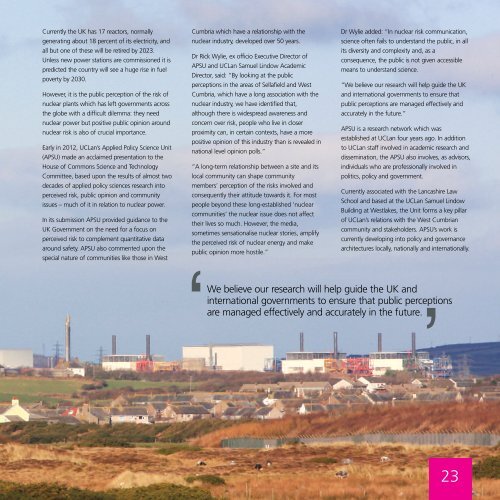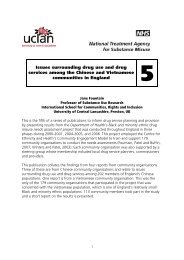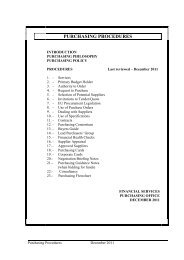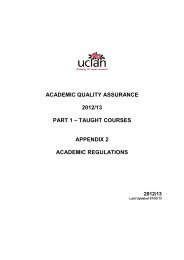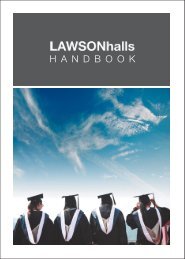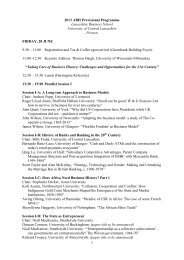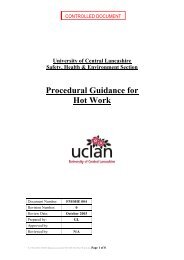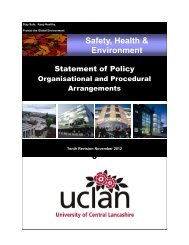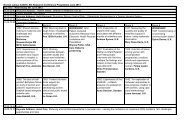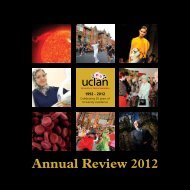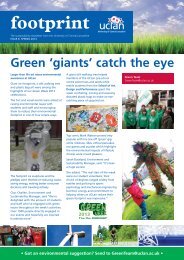Layout 2 - University of Central Lancashire
Layout 2 - University of Central Lancashire
Layout 2 - University of Central Lancashire
Create successful ePaper yourself
Turn your PDF publications into a flip-book with our unique Google optimized e-Paper software.
Currently the UK has 17 reactors, normally<br />
generating about 18 percent <strong>of</strong> its electricity, and<br />
all but one <strong>of</strong> these will be retired by 2023.<br />
Unless new power stations are commissioned it is<br />
predicted the country will see a huge rise in fuel<br />
poverty by 2030.<br />
However, it is the public perception <strong>of</strong> the risk <strong>of</strong><br />
nuclear plants which has left governments across<br />
the globe with a difficult dilemma: they need<br />
nuclear power but positive public opinion around<br />
nuclear risk is also <strong>of</strong> crucial importance.<br />
Early in 2012, UCLan’s Applied Policy Science Unit<br />
(APSU) made an acclaimed presentation to the<br />
House <strong>of</strong> Commons Science and Technology<br />
Committee, based upon the results <strong>of</strong> almost two<br />
decades <strong>of</strong> applied policy sciences research into<br />
perceived risk, public opinion and community<br />
issues – much <strong>of</strong> it in relation to nuclear power.<br />
In its submission APSU provided guidance to the<br />
UK Government on the need for a focus on<br />
perceived risk to complement quantitative data<br />
around safety. APSU also commented upon the<br />
special nature <strong>of</strong> communities like those in West<br />
Cumbria which have a relationship with the<br />
nuclear industry, developed over 50 years.<br />
Dr Rick Wylie, ex <strong>of</strong>ficio Executive Director <strong>of</strong><br />
APSU and UCLan Samuel Lindow Academic<br />
Director, said: “By looking at the public<br />
perceptions in the areas <strong>of</strong> Sellafield and West<br />
Cumbria, which have a long association with the<br />
nuclear industry, we have identified that,<br />
although there is widespread awareness and<br />
concern over risk, people who live in closer<br />
proximity can, in certain contexts, have a more<br />
positive opinion <strong>of</strong> this industry than is revealed in<br />
national level opinion polls.”<br />
“A long-term relationship between a site and its<br />
local community can shape community<br />
members’ perception <strong>of</strong> the risks involved and<br />
consequently their attitude towards it. For most<br />
people beyond these long-established ‘nuclear<br />
communities’ the nuclear issue does not affect<br />
their lives so much. However, the media,<br />
sometimes sensationalise nuclear stories, amplify<br />
the perceived risk <strong>of</strong> nuclear energy and make<br />
public opinion more hostile.”<br />
Dr Wylie added: “In nuclear risk communication,<br />
science <strong>of</strong>ten fails to understand the public, in all<br />
its diversity and complexity and, as a<br />
consequence, the public is not given accessible<br />
means to understand science.<br />
“We believe our research will help guide the UK<br />
and international governments to ensure that<br />
public perceptions are managed effectively and<br />
accurately in the future.”<br />
APSU is a research network which was<br />
established at UCLan four years ago. In addition<br />
to UCLan staff involved in academic research and<br />
dissemination, the APSU also involves, as advisors,<br />
individuals who are pr<strong>of</strong>essionally involved in<br />
politics, policy and government.<br />
Currently associated with the <strong>Lancashire</strong> Law<br />
School and based at the UCLan Samuel Lindow<br />
Building at Westlakes, the Unit forms a key pillar<br />
<strong>of</strong> UCLan’s relations with the West Cumbrian<br />
community and stakeholders. APSU’s work is<br />
currently developing into policy and governance<br />
architectures locally, nationally and internationally.<br />
‘<br />
We believe our research will help guide the UK and<br />
international governments to ensure that public perceptions<br />
‘are managed effectively and accurately in the future.<br />
23


